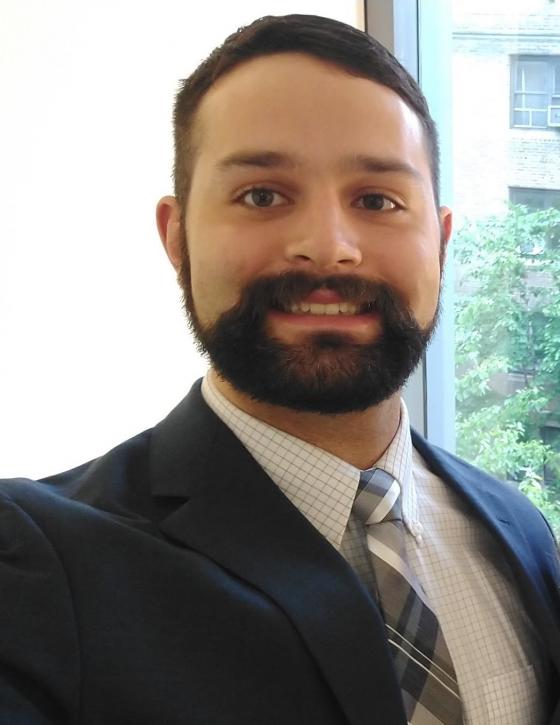
About this Program
With the advent of “big data,” bioinformatics has become one of the major growth opportunities in the life sciences.
Program Overview
Tuition & Fees
Funding Opportunities
Download Bioinformatics Brochure
The master's degree in bioinformatics addresses the cross-cutting core subject areas and skill sets identified by the International Society for Computational Biology as essential for bioinformaticians. The program meets the growing demand for desk- and bench-based science professionals to demonstrate expertise in the experimental design, data handling and data analysis of biology studies that examine genes (genomics, proteins), proteomics and metabolites (metabolomics).
It is designed to develop life science professionals who are fluent in this interdisciplinary field. Increasingly, bioinformatics is the engine by which researchers process, analyze and interpret the vast quantities of data generated every day across Maryland, the nation and the globe.
Students gain sound, practical knowledge in the following areas:
- Programming languages foundations – R, UNIX/Linux, Python
- Algorithm development and testing
- Modeling biological systems
- Molecular structure analysis
- Data management
- Structural bioinformatics
- Database systems and SQL
- Machine learning
- Bioinformatics sequence analysis and comparative genomics
- Systems and integrative biology
- Use of publicly available databases and analysis tools
- Leadership and project management skills
Dual-gateway program
A dual-gateway approach allows individuals from both biology and computer science backgrounds to enter the program successfully by beginning with different foundation courses. It also ensures that students receive the cross-disciplinary training necessary in today’s bioinformatics job market. Students may also elect to complete a complementary certificate in project management.
Experiential learning
Students are strongly encouraged to pursue experiential learning with local research labs and biotechnology companies. Coursework emphasizes the leadership and project management training needed in the team-based environment of bioinformatics research today. In addition, students have access to a laboratory information management system with features that support modern laboratory operations.
Expert faculty, individual attention
Students benefit from small classes taught by faculty who are highly qualified in computer science, biology and bioinformatics. Our faculty have experience with top R&D and biotechnology firms, as well as federal and private laboratories. Their professional connections are instrumental in establishing and maintaining relevant partnerships that provide practical learning opportunities.
Flexible, convenient
The 33-credit M.S. program can be completed in as little as two years or longer on a less accelerated schedule. Evening classes accommodate working professionals and are held on the Hood College campus.
*Active duty Fort Detrick soldiers are eligible for a full tuition waiver for this program or any other graduate certificate and masters program at Hood College per our special Hood/Fort Detrick MOU.
We cannot guarantee international student full-time enrollment for this program at this time. International students should contact gofurther@hood.edu for additional options.
Degrees Offered
- MS
Are you ready to go further?
M.S. in Bioinformatics
Candidates for master's program requirements:
- A bachelor's degree is required for admission, preferably in a STEM field such as computer science or biology. However, students without prior coursework in these areas are also encouraged to apply and will complete foundation courses to complement their academic background.
Applicants must submit:
- A completed graduate online application
- Submit an official e-transcript from the institution where your highest degree was earned sent to gofurther@hood.edu
- A statement of intent of no more than 250 words that describes your background, experience and future goals.
GRE or GMAT exams are not required.
All application materials should be submitted by July 15 for fall admission and December 1 for spring admission. Applications will continue to be reviewed after the deadline on a space-available basis.
Transfer credit policy for admitted students
Students may transfer a maximum of 6 graduate credits from an external, accredited institution, or another Hood graduate program prior to the first semester of study in the current program. Please review the full graduate transfer credit policy in the College catalog.
Students can complete the Bioinformatics M.S. program coursework in approximately two to three years depending on the pace of coursework that they choose. By following these two steps, students can plan on completing the program requirements at a pace that meets their professional needs.
Step One
Look up the Bioinformatics M.S. program requirements, course descriptions and Graduate School policies and procedures in the College Catalog.
Step Two
Students should consult their adviser and the course schedule each semester to determine how they will fulfill the program requirements; the program director contact information is located at the bottom of the Bioinformatics M.S. homepage and students' academic advisers are indicated on their letters of admission. These faculty members can assist in planning a program of study based on a student's professional and career goals. All students must consult with their adviser before signing up for any final research project.
Graduate students have the opportunity to work closely with faculty who can assist in the pursuit of academic and professional goals. Students are encouraged to get to know their faculty advisers and course professors to make the most of their graduate school experience.
The 33-credit M.S. in Bioinformatics includes options for a 3-credit capstone project or a 6-credit thesis. All of the classes are taught in the evening by experts in the field who interact personally with their students. The degree includes a required “gateway” foundational course that differs according to the student’s background in either biology or computer science. The coursework includes the following:
Initial courses cover public databases and applications, database management/data mining, programming for bioinformatics, statistics and analysis of genomic, proteomic and data modeling. Under the program’s “dual-gateway” format:
- Candidates who have strong biology backgrounds begin by enrolling in a “gateway” foundation course in computer science.
- Candidates who have strong computational backgrounds, but lack the understanding of life science and ‘-omics’ projects, enroll first in a foundation course that introduces the basics of cell biology and genome science.
- Electives are centered on specific applications and tools and emphasize the synergy and integration of multiple approaches and platforms as solutions to bioinformatics challenges.
- A team-based research project, linked where possible with local research labs and companies, culminates the program. Students are required to develop the research questions; collect and analyze the primary data; coalesce and synthesize the material into a final product; and report their findings back to the partner institution.
Required courses (24 credits required)
| BIFX 501/BMS 501 | Foundation in Life Sciences (for non-Life Scientists) | 3.0 |
| or |
| |
| BIFX 502 | Foundations in Computer Sciences (for non-Computer Scientists) | 3.0 |
| ||
| BIFX 503 | Biostatistics in R | 3.0 |
| BIFX 504 | Advanced Molecular Bio for Bioinformatics | 3.0 |
| BIFX 545 | Leading Reproducible Research | 3.0 |
| BIFX 550 | Functional Genomics: Sequence Analysis and Structural Bioinformatics | 3.0 |
| BIFX 551 | Advanced Programming for Bioinformatics | 3.0 |
| BIFX 552 | Bioinformatics Data Skills | 3.0 |
| BIFX 553 | Applied Data Science for Bioinformatics | 3.0 |
Elective Courses (3-6 credits required)
Students electing to pursue the Capstone path (BIFX 579), will complete two elective courses (6 credits). Students electing to pursue the thesis path (BIFX 580A and B), will complete one elective course (3 credits).
| BIFX 530/ IT 530 | Applied Database Systems | 3.0 |
| BIFX 546 | Machine Learning for Bioinformatics | 3.0 |
| BIFX 547 | Building and Using Web-based BIFX Applications | 3.0 |
| BIFX 548 | Data Visualization for Bioinformatics | 3.0 |
| BIFX 572 | Computational Genomics Practicum | 3.0 |
Capstone or Thesis
| BIFX 579 | Capstone Project | 3.0 |
| or | ||
| BIFX 580A | Bioinformatics Master's Thesis I | 3.0 |
| and | ||
| BIFX 580B | Bioinformatics Master's Thesis II | 3.0 |
Students may elect to complete Hood’s 15-credit bioinformatics certificate and then apply those credits* toward the M.S. degree.
| FAES Course | Hood Equivalent |
| STAT 5000 II-0 Statistics for Biomedical Scientists II | BIFX 503 Statistics for Bioinformatics |
| BIOF 518 Theoretical and Applied Bioinformatics | BIFX 550 Nucleic Acid Sequence |
| BIOF 509 Applied Machine Learning | BIFX 502 Foundations in Comp Science (Certificate Only) |
*An FAES student may count up to 9 FAES credits toward their BIFX degree or up to 6 credits toward their BIFX certificate, pending approval of the program director.
18-24 Months
Average Completion Time
33 Total Credits
Program Contact

Program Director

Assistant Director of Graduate Admission

Graduate Alumni Spotlight | Daniel Vogel, M.S.'23
"The faculty at Hood are top notch. They are engaging, take a personal interest in all the students and have current, real-world experience."

Graduate Student Focus | CoLAB Scholars
“My hope is to inspire people and make my path to success open to as many who are willing to want more for themselves and not take no for an answer. We are all capable of learning new material and furthering ourselves. Our ambitions go beyond race, gender and circumstance. Opportunities such as the CoLAB Scholarship cannot be ignored.”

Spotlight on Bioinformatics Graduate Student | Conor Jenkins
"Miranda Darby, Ph.D., has been one of the most amazing mentors that I have had in Bioinformatics. I feel as if she deeply cares for everyone of us, and expects great things of her students."



